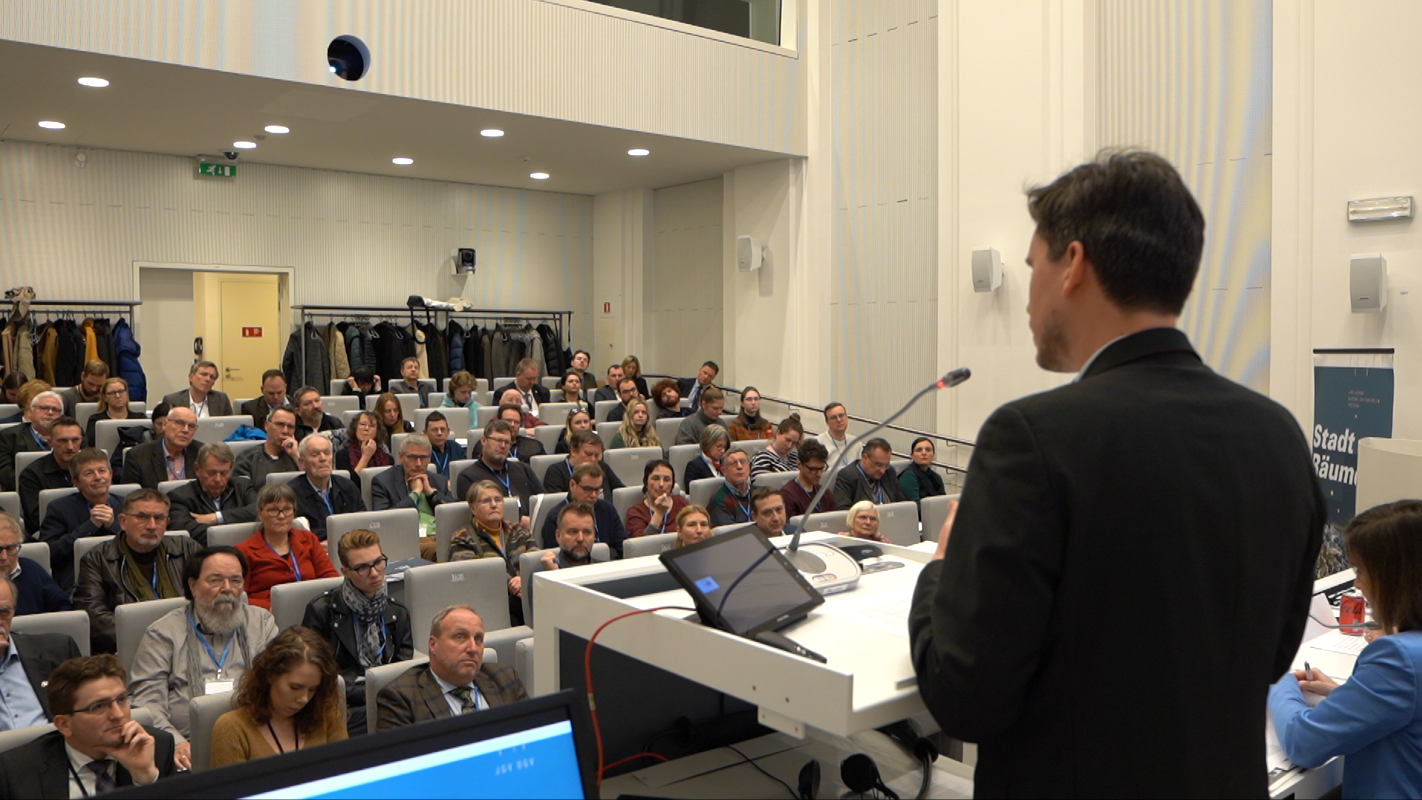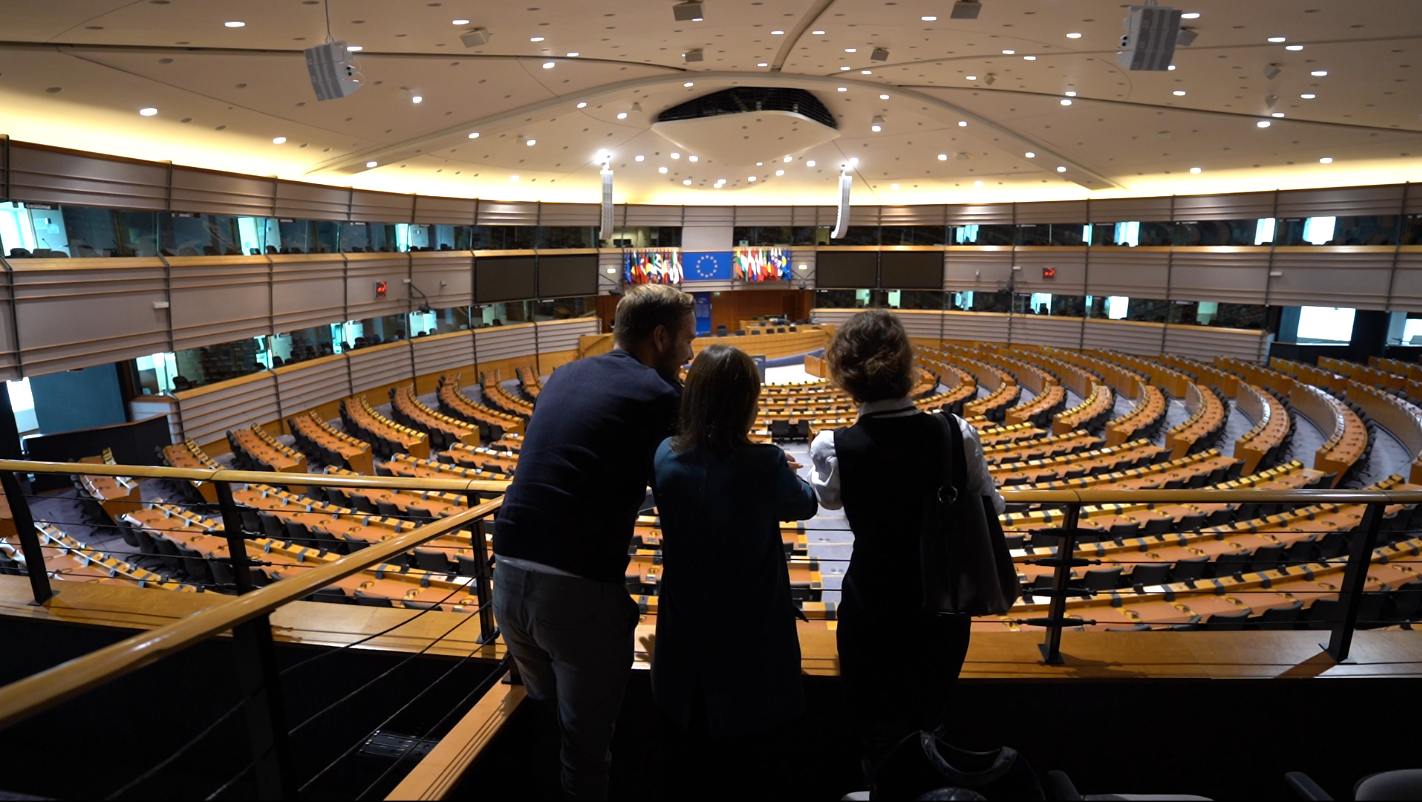For the Opladener Geschichtsverein von 1979 e.V. Leverkusen (OGV), the year 2023 is all about the period between the two world wars. Lectures, excursions, film screenings, concerts and an exhibition will focus on the crisis and threshold year 1923. The public programme on the interwar period (1918-1939) will start in April. While the final preparations for this are underway, around 100 participants in the international UrbanSpaces project looked back from 22 to 25 February in Brussels.
For once, however, they did not focus on politics, economics, culture and urban development in the towns of Leverkusen, Jülich, Schwedt/Oder, Villeneuve d'Ascq (France), Bracknell (England), Raciborz (Poland), Oulu (Finland) and Ljubljana (Slovenia). Instead, the focus was on their own project: How did the participating historians and history enthusiasts manage to launch the project under covid conditions and primarily via video transmission in the summer of 2020? How can institutions such as universities, history societies and museums cooperate successfully across countries? And in which areas should the guidelines of the funders of the project, which is largely financed by the EU, be better adapted in the future?
These and many other questions were discussed by representatives of various European institutions with the partners around the project leaders Michael D. Gutbier (Chairman OGV), Guido von Büren (Jülich History Society) and Prof. Dr. Wolfgang Hasberg (University of Cologne). "In the past three years, we have not only learned a lot about the history of the interwar period, but also a lot about cooperation in such a cross-border project," says Gutbier. "We are pleased that we were able to share our experience with several European bodies at once."
On 23 January, a small delegation had already presented the project to the European Parliament's Committee on Culture and Education. Its chairperson Sabine Verheyen now also took part in one of the discussion rounds that took place in the House of European History and in the European Committee of the Regions. She emphasised the importance of such European exchange projects to strengthen the understanding of different perspectives and the awareness of common history - especially in view of the Russian attack on Ukraine, which Vladimir Putin repeatedly tries to justify with historical arguments.
At a reception on 24 February, the anniversary of the invasion, Bernhard Marewski accordingly spoke of the "strong will for understanding and friendship among peoples" that characterises the UrbanSpaces project. The 1st Mayor of Leverkusen accompanied the OGV delegation. In his greeting, he also emphasised the commitment of the "youth group", the youth group within the project. They accompanied the project on Facebook and Instagram (https://instagram.com/urbanspaces.eu) and created about 150 postings for it. The spectrum ranges from coffee house culture in Ljubljana to the Jewish community in Schwedt to cinema in the Weimar Republic.
More about the UrbanSpaces project and the events planned for 2023 in Leverkusen and the region: https://ogv-leverkusen.de/programm/thema-stadtraeume-in-der-zwischenkriegszeit.
"Strong will for friendship". UrbanSpaces project: 100 participants from six countries in Brussels.

Johannes Börmann, representative of the EU Commission, addresses the participants in the auditorium of the "House of European History". (Foto: Andre Bossuroy)

Participants from Slovenia in the visitors' gallery in the plenary hall of the European Parliament. (Foto: Andre Bossuroy)
Group photo in Brussels. (Foto: Andre Bossuroy)